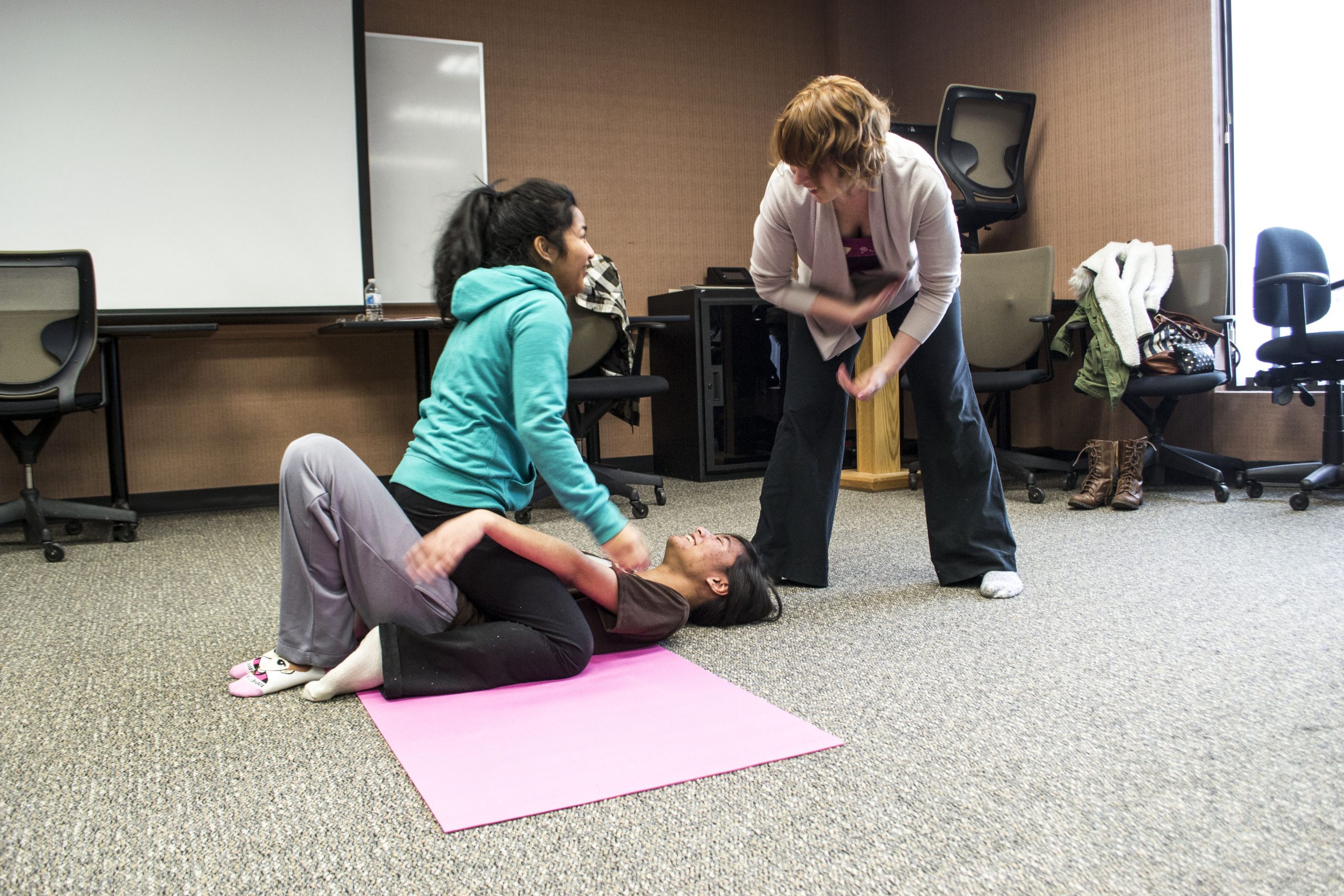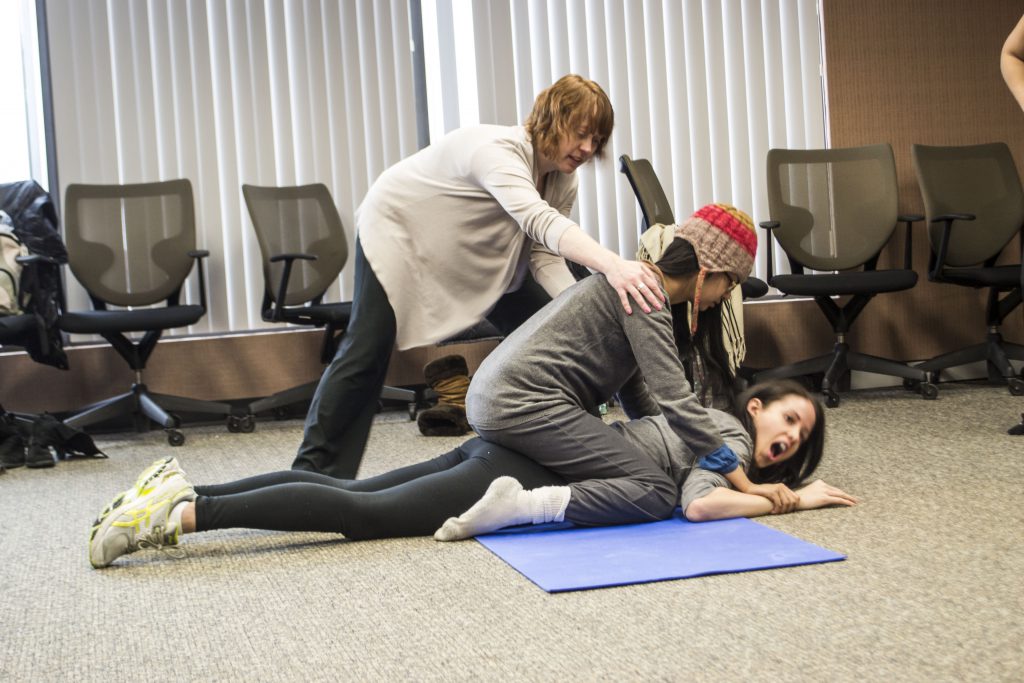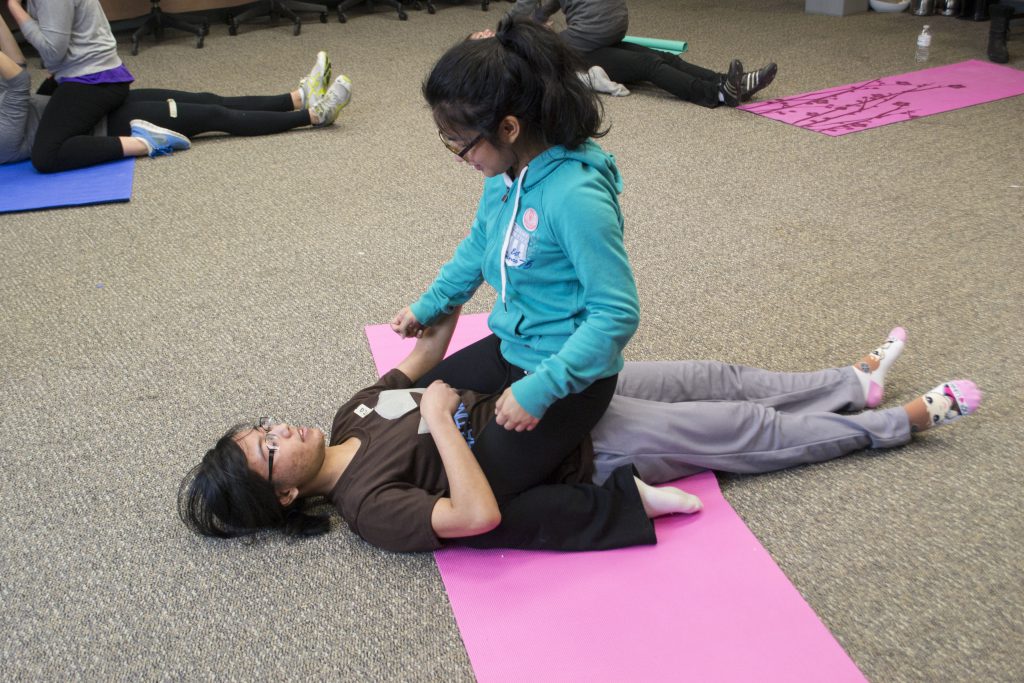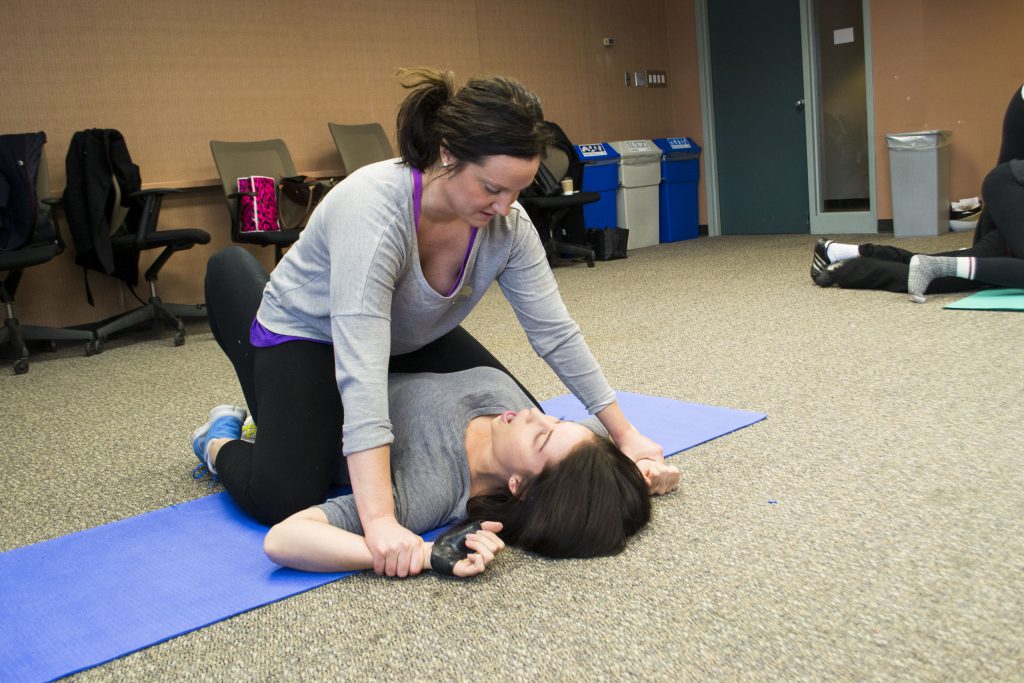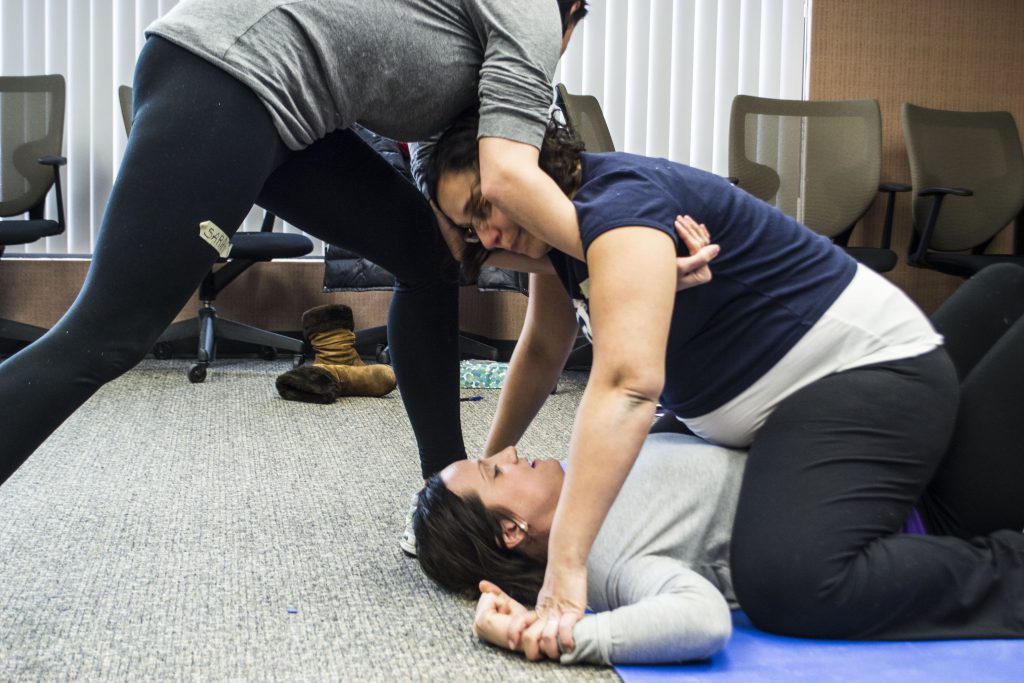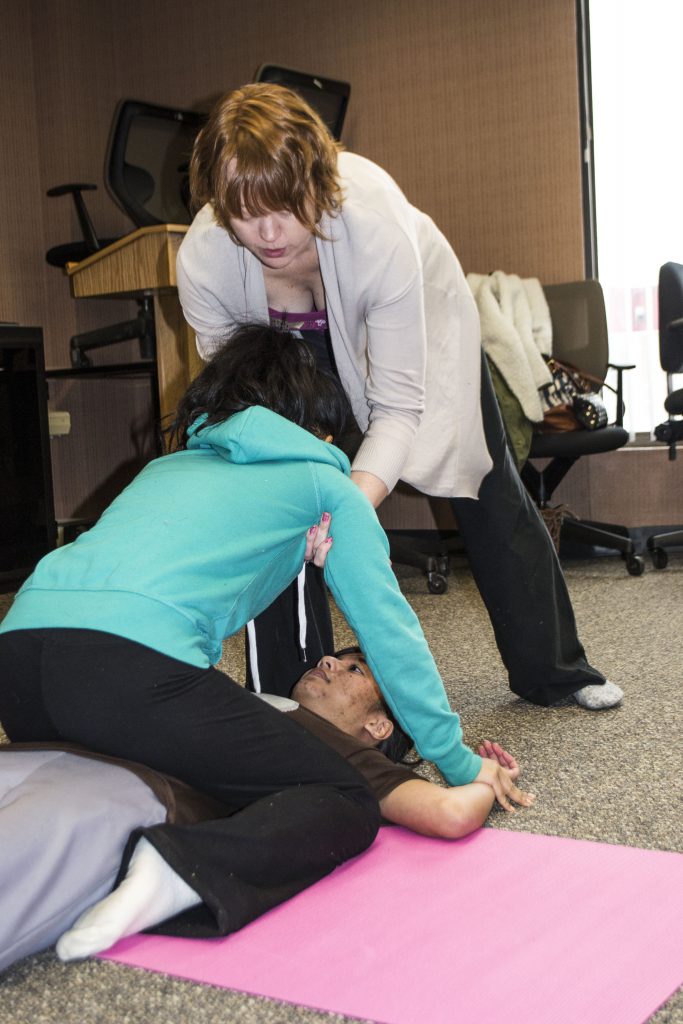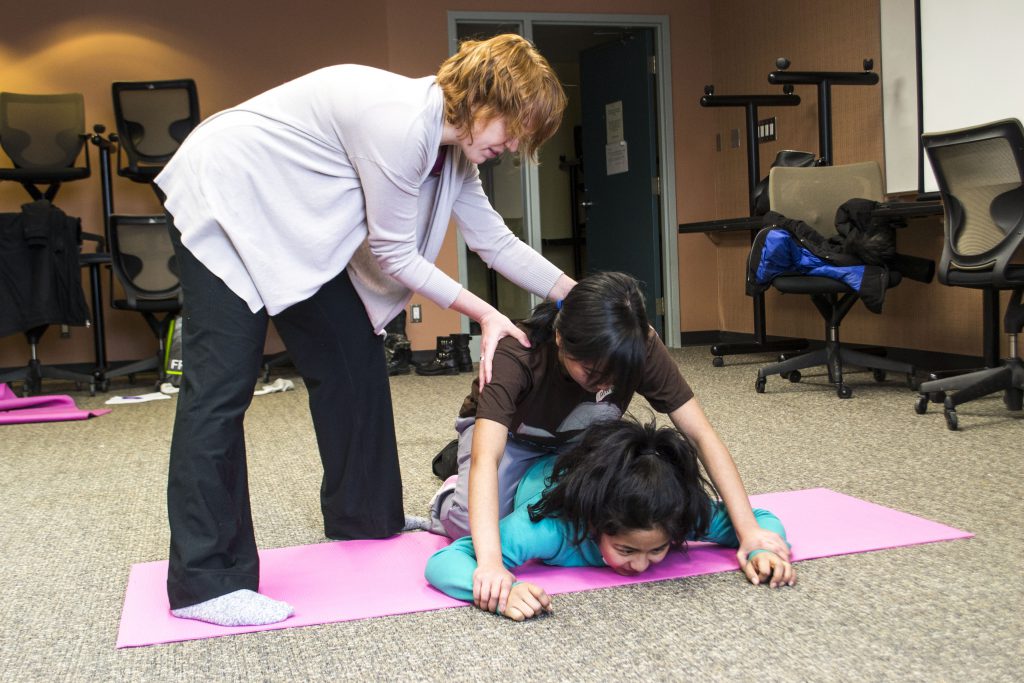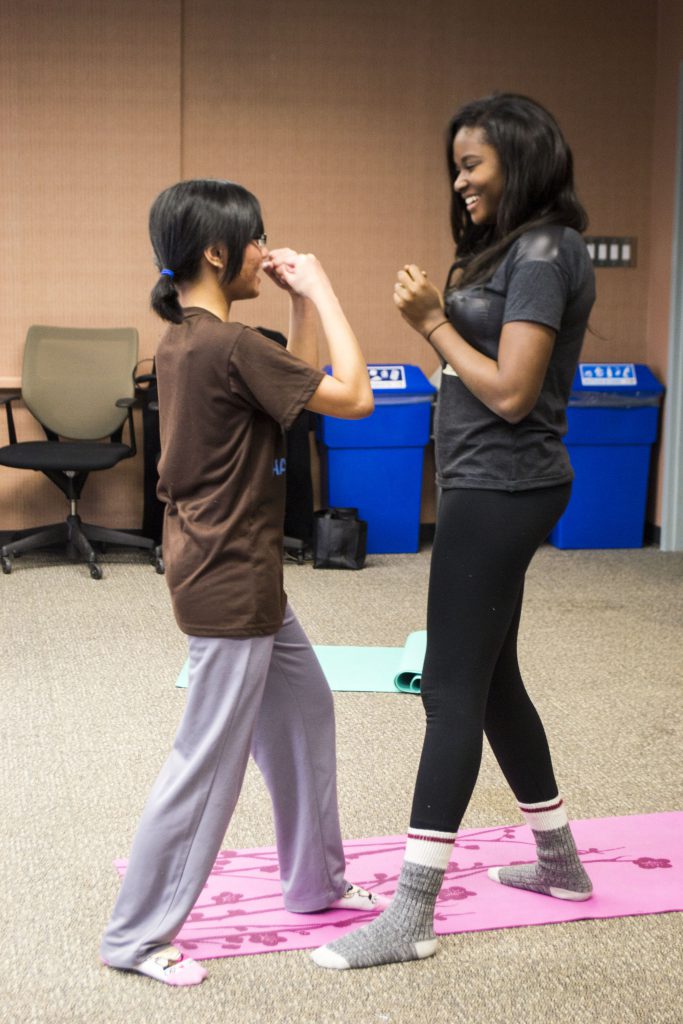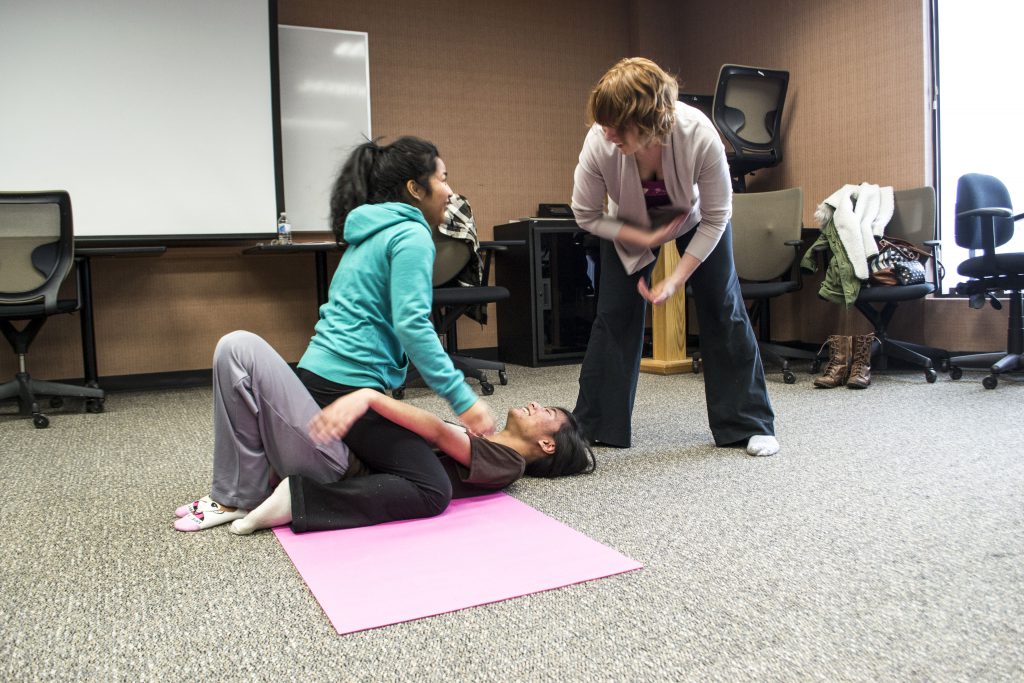By Sana Fatani (Centennial College)
The Eden of women’s self defence in Toronto is Wen-Do. It’s a curriculum dreamed up in 1972 by Ned and Anne Paige, who had a background in martial arts and wanted to create a custom set of moves just for women to defend themselves. Though Wen-Do incorporates moves from Karate and Judo, it’s not strictly a martial art. Wen-Do classes cover a suite of topics, from physical and verbal defence, to sociological lessons about violence against women.
It is the ultimate preparatory tool, says the organization, for women to protect themselves with.
The first step is to act. “If we see a women on television fight back it’s usually ineffective,” said Denise Handlarski, one of Toronto’s eight Wen-Do instructors. “Usually we see a woman sort of swat back at the attacker’s chest, but not do anything with power, not hit the nose, the collarbone, the knee, the target we know are weak spots on everybody, and so it does send the message that women can’t fight back…. In real life we know that 70 to 80 per cent of the time women fight back, we get away.”
Women are taught to trust their instincts. If they feel uncomfortable in a situation, there’s probably a good reason. “Self-trust is a big part of self-defence that we talk about,” said Deb Chard, a Wen-Do instructor of 25 years. “Women are often taught as we’re growing up to ignore our instincts, to think that we’re being paranoid, or to think that we don’t want to be rude, so we don’t want to get away from people even though they’re making us feel uncomfortable.”
Chard likes to tell a story about a 73-year-old woman who chased off a potential attacker.
“A 73-year-old woman who took a course with me lived in a neighbourhood where three women had been raped a number of years ago, raped by someone they didn’t know. In the six-week course that this woman was on, she’s 73, she’s walking home alone at night in her neighbourhood where she’s lived for 30 years. A man started following her, making comments to her body parts, about what he was going to do to her, so he was threatening to rape her…. This woman said she was so scared she forgot all the hits and the kicks and the blocks and the releases that she’d learned in class—she turned around, she faced this man, she went into what we call fighting stance, with fists raised so that her throat and her face were being guarded, and she bellowed from the bottom of her lungs: ‘Back off!’ And he said ‘You back off!’ and he ran away. That should have been front-page headlines, right? We should be reading and hearing about the women every day who defend themselves in really smart and powerful ways, but we don’t hear about it so much. We hear about the women who didn’t get away.”
Deb Chard, Wen-do instuctor
Women who take Wen-Do classes are taught verbal self-defence strategies like de-escalation and confrontation. One of the strategies is to tell an assailant that you know who they are. Another, exemplified by the story about the woman, is to use the element of surprise to change how your attacker sees you.
Physical strategies include strikes and other techniques borrowed from other martial arts like Karate and Judo. None of the techniques Wen-Do teaches emphasize strength: they are meant to be used against a stronger attacker and so focus on attacking weak points and using the attacker’s momentum against them.
Chard stresses, however, that Wen-Do never tells women how to act in any situation. “We offer women choices, not rules. [It] depends on the situation and how you feel. Where are you? How isolated are you? What time of day or night is it? How much traffic is on the street? Do you have a safe place to run to?”
Women of all kinds, from 10-year-olds to the elderly and women with physical disabilities, have completed Wen-Do training.
Mary Carl, a Wen-Do student, found in the classes empowering self-defence tools for women of all age groups, free from the competitive and masculine-reigning atmosphere of many martial art courses.
“It’s very therapeutic to come into these spaces,” she said. “Because not only are you getting your body moving, but you’re also talking about real-life situations in which you really need support. It gives you confidence to know you can actually defend yourself against all odds.”
“The number-one thing we hope women learn from our class,” said Handlarski, “is they’re worth defending.”

